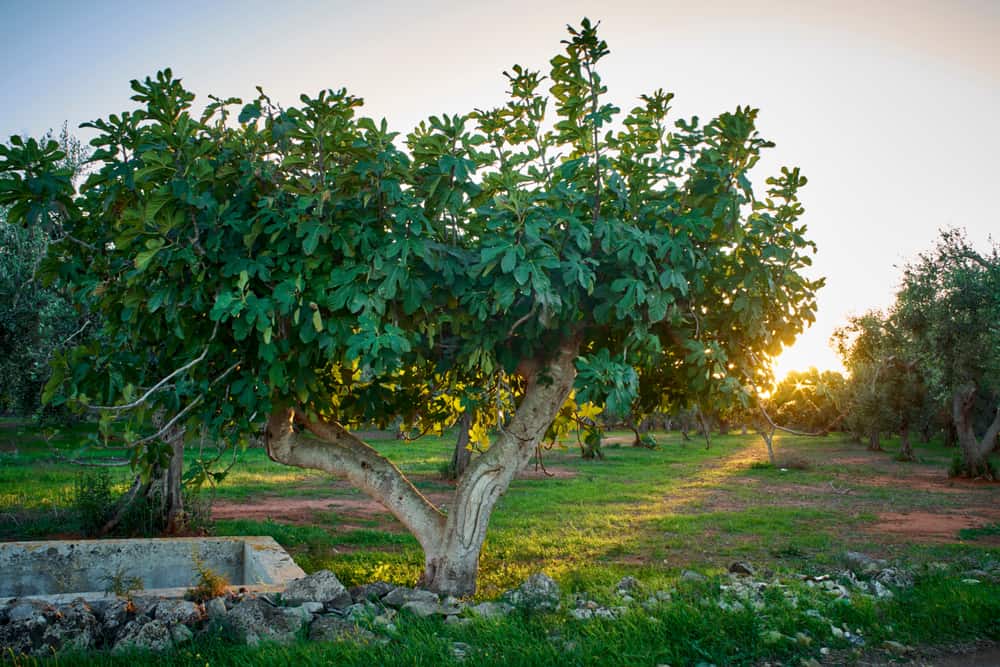What is your take on recycling? Do you put out a bin each week labeled so that the waste removal crews know to put the contents into the “to be recycled” truck?
Some things recycle better than others. Styrofoam, for example, has very little use after the product it protects during shipment arrives and is unpacked. Scraps from fruits, vegetables, and other plants, on the other hand, are natural fertilizers. They break down quickly and become fertile soil. Talk about recycling.
Whether you compost, recycle, or just generate a lot of waste, we all need nutrients to stay healthy. Add in air, water, and plenty of love, and we have a good combination for yielding fruit.
One day Jesus was telling stories to a crowd.
“A man planted a fig tree in his garden and came, again and again, to see if there was any fruit on it,” Jesus began, “but time after time, no figs!” the man was always disappointed and frustrated, so finally, he said to his gardener, “I’ve waited three years, and there hasn’t been a single fig! Cut it down. It’s just taking up space in the garden.”
Can you identify with the man’s frustration? You plant an apple tree or raspberries that you paid good money for. But time after time, you check on its progress with little sign that fruit is coming. You could almost taste the apples the day you found the tree at the local nursery.
Jesus continued, “The gardener answered his boss pleading on the side of keeping the tree. “Give it one more chance. Leave it another year, and I’ll give it special attention and plenty of fertilizer.”
Wait! This is feeling sort of personal. I wonder how many times someone has stood up for me that way? Have you ever needed a second chance?
And the gardener adds this final point of assurance to his boss. “If we get figs next year, fine. If not, then you can cut it down.”
Bosses like to know that there is a limit. But on the other hand, the gardener may find herself pleading on the fig tree’s behalf again. Meanwhile, love and manure are the best paths forward.
But what about the fertilizer?
Professor Cory Driver writes in a reflection on Jeremiah’s call to prophesy that “I believe the tasks for which God called Jeremiah and for which God calls us as well are the work of a master gardener who is deeply in love with creation and expects humans to produce good fruit” (Jeremiah 1:4-10).
Driver shares a story about growing tomatoes in the Arava Desert in southeast Israel. He shares that each tomato requires around 20 cube centimeters of organic fertilizer. And each season brings the ripping up and composting of the plants after their season is over to make fertilizer for the next season of tomato plants.
Candace Simpson writes in her book Who Can We Be Together? that “It’s not easy to build and sustain communities, especially when there are forces that drain us, exhaust us, and even push us to act uncharacteristically. And yet, we are called to act on the most ethical principles of our faith so we can witness the kin-do of God on earth.”
But working together requires a functioning connection between us. And we share the gifts and graces given freely by a God who loves us. In her commentary on the Parable of the Fig Tree, Simpson asks, “How do you know when to pursue a relationship and when to distance yourself from it?”
In answering this question, the author challenges us to consider the context of the communities we serve compared to the community hearing this parable when told by Jesus. Who holds political, economic, and social power in our community? In other words, who decides whether the fig tree is given more time to produce?
How do the religious leaders fit into the social order in our community? What role should the church play? Who are the fig trees in our community? Are we willing to argue for more time and to ensure adequate resources are available to the oppressed?
One of the decisions facing our city is how much longer water distribution should continue. The Flint City Council approved a portion of the funding from the American Rescue Plan Act to allow water and food distribution to continue at the three community help centers through June of next year. But, is one more year enough time?
You can join us each Sunday in person or online by clicking the button on our website’s homepage – Click here to watch. This button takes you to our YouTube channel. You can find more information about us on our website at FlintAsbury.org.
A reminder that we publish this newsletter that we call the Circuit Rider each week. You can request this publication by email. Send a request to connect@FlintAsbury.org or let us know when you send a message through our website. We post an archive of past editions on our website under the tab, Connect – choose Newsletters.
Pastor Tommy
Content for this series is based in part on:
Candace Simpson. Who Can We Be Together? A Biblical Exploration of Luke 13. New York: United Methodist Women, 2022.
Prof Cory Driver. “Journeying with God.” The Upper Room Disciplines 2022. © Nashville:Upper Room Books, 2021.

